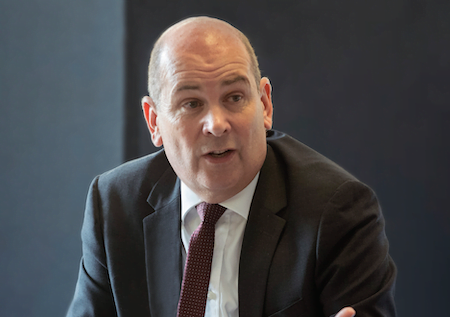In this guest blog, Lakes’ Mike Tattam argues that now is the time for manufacturers to embrace the environmental revolution.
The Government’s Ten Point Plan for a Green Industrial Revolution is a call to arms for individuals and organisations to fight for the future of our planet – we must do whatever it takes to protect our world, and we must do it now.
The climate emergency we are all facing requires nothing less than a revolution; a complete change in the way we live, work and do business. We fully support the Government’s radical ten-point strategy and would echo the sentiments of the Builders Merchants Federation (BMF), that we are being ‘presented with an enormous opportunity to move towards a low or zero-carbon future’. We must grab that opportunity with both hands.
We have long been committed to reducing our impact on the environment. Last year Lakes became the first in the industry to introduce 100% recyclable packaging while offsetting more tonnes of carbon emissions than it generated. In 2020 we’ve been able to recycle more than 75% of the waste produced at our manufacturing facility and saving the equivalent of almost 300 trees, all of which has recently earned Lakes the Carbon Neutral Plus standard.
While the Government’s Green Industrial Revolution strategy has few points which explicitly apply to the bathroom industry, we believe that the way the strategy is interpreted will give the sector plenty of scope to implement changes and make improvements…
One of the key points in the Green Revolution plan relates to carbon capture to remove more than 10MT of carbon dioxide from the atmosphere in the next 10 years. More investment, research and development will be required before carbon capture at source is commonplace in our manufacturing facilities, but what we can do as an industry is taking steps to significantly reduce our carbon emissions as much as we can while this new green tech is being developed.
As well as helping to make a difference to the environment, we believe that adopting a sustainability focus to operations makes good business sense. Once the Environmental Bill becomes law, for instance, companies could find themselves financially penalised by proposed new measures which will form part of the Resources & Waste strategy – such as a tax on plastic packaging and manufacturers taking responsibility for the full costs of disposing of the packaging they place in the market.
We as manufacturers have a sphere of influence and we can help get the whole bathroom supply chain to be more sustainable if we develop and implement strong, forward-thinking green policies ourselves. The time for talking has passed, it’s now time for action.
